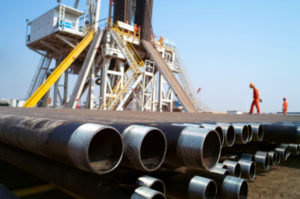Raseel is a leading Oil & Gas industry training and consultation provider
Our long experience with our E & P industry clients created a mutual understanding and quick response to their needs. Our clients rank us on the top to provide training and consultations in the following areas:
 |
| – Petroleum engineering for none petroleum engineering – Drilling engineering for none drilling engineering – Reservoir modeling and characterization – Modeling of fractured reservoirs – Basic reservoir engineering – Basic drilling engineering – Reservoir simulation and monitoring – Field development – Well stimulation – acidizing / fracturing – Drilling & well completion – Well completion & workover – Maximizing recovery through EOR / IOR – Uncertainty, risk and decision analysis – HPHT drilling and well completion – Water shut-off |
1- Advanced Process Control (Operation)

Course Description:
This course takes a light technical look at the state-of-the-art in modern control engineering, focusing on techniques that are applicable to the process industries. As the rate of development in this field is phenomenal, the review is not exhaustive. It is also well known that any improvement in the performance of control strategies will result in more consistent production, facilitating process optimization, hence less re-processing of products and less waste. Example cases such as Separator Process, Reactors, Power System, HVAC System are used to illustrate the application of Advanced Process Control.
Who should attend:
- Instrumentation Engineers and Technicians
- Control Systems Engineer
- Mechanical and Operation Engineers
- Production Supervisors, Asset Management Team Members who is responsible of select, specify, design and operate process control
5 Days
Register with us
Send us for course outline
2- Basic Instrumentation and Control
 Who Should Attend:
Who Should Attend:
The aim of the course is to provide background information for process & control engineers and technicians with some experience in industry who are involved in design, maintenance or development, and who possibly need to specify or commission instruments for measurement and control of processes in refineries, petrochemicals, power plants and other industries. It will be beneficial to all plant operating personal.
Course Description:
This course covers the fundamentals of instrument devices:
Types, selection, installation and operation. The course will equip the participants with the knowledge of automatic control systems, their design and application. At the conclusion of the course, participants will be capable of working and communicating with instrument and control engineers.
5 Days
Register with us
Send us for course outline
3- Distillation Control
CONSULTING
 Introduction
Introduction
Distillation is the most common separation technique and is energy intensive. Distillation can consume more than 50% of a process plant’s operating energy cost. A way to improve an existing plant’s operating cost or to reduce a new distillation system’s operating cost is to improve the efficiency and operations by correct equipment selection, process optimization and control.
Course Objective
This course will guide the participates to develop key concepts and techniques to operate, control, and troubleshoot a distillation system. After completion of the course, participants are expected to gain:
- The fundamental knowledge of distillation control.
- The operation, control and trouble shooting of a distillation columns and it’s associated equipment
- An overview of distillation, practical solutions as well as theory
- An understating of essential distillation concepts
Audience:
Managers, operators, facilities engineers, operating engineers, supervisory personnel, maintenance and technical personnel involved in the day to day operations of distillation processes.
5 Days
Register with us
Send us for course outline
4- Applied Hazard and Operability (HAZOP) Study
INTRODUCTION
There are numerous hazards associated with chemical processes. The process designer must be aware of these hazards and ensure that the risks involved with these hazards are reduced to acceptable levels; or as some would say; as low as reasonably practicable (ALARP); through the application of engineering principles and proven engineering practice. The hazard and operability study (HAZOP study) is a systematic technique for identifying all plant or equipment hazards and operability problems.
BENEFITS
By attending this workshop you will gain a thorough understanding of the fundamental concepts and methodology of the HAZOP study, risk assessment and risk reduction.
OBJECTIVES
The aim of this course is to let the candidates acquire a thorough understanding of the fundamental concepts and methodology of the HAZOP study technique, risk assessment and risk reduction. Specifically, the candidates are expected to:
- Gain an understanding of the different major techniques used for hazard identification, and a detailed knowledge of the HAZOP study technique.
- Gain basic skills necessary to conduct a HAZOP study.
- Be able to provide significant improvement in operability by optimizing operator interactions with the process and reducing the risk of human error.
- Acquire knowledge necessary to prepare for lead, generate, report on and follow up on HAZOP studies.
- Acquire skills required to lead multidisciplinary teams undertaking HAZOP studies.
- Be able to suggest possible mitigating measures to reduce or control identified risks.
Who Should Attend
Engineers of all disciplines, safety/environment personnel, plant operators, area managers, heads of maintenance, in addition to those involved in the management of process plants.
3 Days
Register with us
Send us for course outline
5- Hazard Assessment and Risk Analysis Techniques for Processes
INTRODUCTION
There are numerous hazards associated with chemical processes. The process designer must be aware of these hazards and ensure that the risks involved with these hazards are reduced to acceptable levels; or as some would say; as low as reasonably practicable (ALARP); through the application of engineering principles and proven engineering practice. The hazard and operability study (HAZOP study) is a systematic technique for identifying all plant or equipment hazards and operability problems. The HAZOP study is the first step in a safety study, because the study is not useful unless it is followed by answering questions such as: what is the possibility of such a hazard happening? In other words, a hazard analysis (HAZAN); or as some would say a “risk assessment”; is required to be performed in order for the analysis to be practical. Finally, in light of the results of the above two tasks, questions related to risk reduction needs to be addressed to complete the safety study
BENEFITS
By attending this workshop you will gain a thorough understanding of the fundamental concepts and methodology of the HAZOP study, risk assessment and risk reduction.
OBJECTIVES
The aim of this course is to let the candidates acquire a thorough understanding of the fundamental concepts and methodology of the HAZOP study technique, risk assessment and risk reduction. Specifically, the candidates are expected to:
- Gain an understanding of the different major techniques used for hazard identification, and a detailed knowledge of the HAZOP study technique.
- Gain basic skills necessary to conduct a HAZOP study.
- Be able to provide significant improvement in operability by optimizing operator interactions with the process and reducing the risk of human error.
- Acquire knowledge necessary to prepare for lead, generate, report on and follow up on HAZOP studies.
- Acquire skills required to lead multidisciplinary teams undertaking HAZOP studies.
- Be able to conduct a risk assessment on chemical processes.
- Be able to suggest possible mitigating measures to reduce or control identified risks.
Who Should Attend
Engineers of all disciplines, safety/environment personnel, plant operators, area managers, heads of maintenance, in addition to those involved in the management of process plants.
5 days
Register with us
Send us for course outline
6- Hazardous Chemicals Handling – Level 1
Introduction
This course introduces participants to the core components of the industrial health approach to minimizing exposure to harmful hazards upon chemical handling. Throughout the course, participants will gain the knowledge and understanding of the skills of an industrial hygienist and when to request assistance. They will learn how to use the emergency response guidebook: A guidebook for first responders during the initial phase of dangerous goods and hazardous materials incident.
Who should attend
Any person whose job more or less deals with chemicals. For example, laboratory staff, foremen, and technicians who have direct contact with chemicals handling, storing, processing, disposing, and/or recycling. In particular, it is recommended for people working in cosmetics, detergents, paints, petrochemical, pharmaceutical, polymer, and solvents industries.
Objectives
By the end of this course, participants will be able to:
- Ability to Anticipate Potential Hazards Where the Skills of an Industrial Hygienist Are Recommended.
- Basic understanding of the major hazard categories an IH is called upon to evaluate.
- List General Hazard Classifications.
- Identify Hazards By Container Label Information.
- Explain Container Labeling Requirements.
- Locate and Gather Information From MSDS (Material Safety Data Sheets).
5 Days
Register with us
Send us for course outline
7- Hazardous Chemical Handling – Level 2
Introduction
This course introduces participants to the core components of the industrial health and safety. Throughout the course, participants will gain the knowledge and understanding of the skills of an industrial hygienist and when to request assistance. Participants will gain the knowledge base for public awareness regarding potential and imminent sources of hazards whether they are of chemical or physical nature.
Who should attend?
This course is highly recommended for any person whose job indirectly deals with chemicals.For example, technical manager, staff engineers, facility managers, supervisors, office personnel, secretaries, human resources department, public relations staff, and indoor or in-office persons. In particular, it is recommended for people working in cosmetics, detergents, pharmaceuticals, paints, petrochemical, polymer, and solvents industries.
Objectives:
By the end of this course, participants will be able to:
- To be aware of all potential sources of airborne hazards and of their imminent effects on the respiratory tract.
- To be aware of the respiratory tract system itself.
- To be aware of the definition of permissible and lethal exposure limits.
- To show how to use the web as a rich source of information regarding chemicals hazards and their toxicity.
- To provide an overview of occupational solvent exposure
- To review potential health outcomes and public health prevention options.
- To provide background information on specific solvents
- To illustrate the diverse effects of solvents through cases involving solvent toxicity
- Explain the meaning and impact of accidents.
- Identify different types of accident causes.
- Know the purpose of accident Investigation.
- Explain how to conduct an accident investigation.
- Know how to document accident investigations.
5 Days
Register with us
Send us for course outline
8- Identification, Classification, and Evaluation the Risks of Chemicals
Introduction
This course introduces participants to the core components of the industrial health approach to minimizing exposure to harmful hazards upon chemical handling. Throughout the course, participants will gain the knowledge about hazardous chemicals and understanding of the skills of an industrial hygienist and when to request assistance.
Who should attend:
Any person whose job more or less deals with chemicals. For example, laboratory staff, foremen, and technicians who have direct contact with chemicals handling, storing, processing, disposing, and/or recycling. In particular, it is recommended for people working in petrochemicals, polymer, solvents, Petroleum and gas, gases, detergents, paints, and pharmaceutical industries.
5 Days
9-Process Hazards Analysis
COURSE OBJECTIVE
This course is designed to deliver expert instruction on how to successfully plan and execute Process Hazards Analysis (PHA) studies efficiently and effectively. This includes understanding the principles behind each of the major PHA methods (HAZOP, What-if?, Checklist, FMEA), learning how to deal with challenging personalities within the PHA team and how to avoid common pitfalls and traps so your PHA studies run smoothly.
WHO SHOULD ATTEND?
- PHA / HAZOP Team Leaders & scribes
- Health & Safety / HSE professionals
- Process Safety Management (PSM) / Loss Management specialists
- Supervisors, managers and engineers responsible for PHA studies
5 Days
Register with us
Send us for course outline
10-Safety in Industrial Plants
Program Description
Industrial plants (Oil & Gas plants, Petrochemicals or Power plant) are intrinsically, dangerous work places. The principles of modern safety and health practices, when applied, will minimize the chance of accidents and exposures.
The Safety in Industrial Plants course covers the design and implementation of a cost- effective safety program. Key steps to a safe system of work, the management of risk which includes methods to evaluate, develop and asses safety programs, and accident investigations are detailed. At the end of the five-day course, training requirements and identification of hazard potential in new projects are covered.
This Comprehensive modular course is capable of adaptation to meet a variety of industries. The course is aimed at management at a variety of levels. It also provides opportunity for practical experience of some of the specialized techniques which may be required to support essential documentation.
The course consists of lecturing, workshop participation and video material portraying real life scenarios as well as appropriate fictional situations
Who Should Attend
This course is essential for plant personnel in Safety and Environment departments, Production, Maintenance, Plant a Process Engineering who are seeking to improve their safety programs. Others who should benefit from the course include plant managers, facility engineers.
5 Days
Register with us
Send us for course outline
11-“PROCESS PLANT TROUBLESHOOTING AND ENGINEERING PROBLEM SOLVING”
Course Description
Troubleshooting of refineries or chemical plants is required to restore or improve on-line time and production capacity, achieve specification of product, by-products and waste streams, reduce safety hazards, improve yields, reduce consumption of utilities, auxiliary chemicals and catalysts, and meet environmental standards.
Instruction in the different types of troubleshooting techniques, procedures, and methods used to solve engineering problems. Topics include application of data collection and analysis, cause-effect relationships, and reasoning.
Course Objectives
Explain steps in troubleshooting models; demonstrate use of troubleshooting tools; and apply troubleshooting techniques to process problems. Process Technology expands the participant’s knowledge and understanding of common unit operations such as; reactions, distillation, absorption, stripping, and gravity separation, all common operations found in many process plants. The participant learns how variables in a process system interact with each other in a dynamic manner. In addition, the participant is exposed to many different trouble situations similar to those he will encounter in his process plant experience. The participant is taught a systematic way to solve engineering problems, using measured process variables, and personal knowledge of how
they affect each other (cause and effect).
Who Should Attend?
This course is designed for plant managers, supervisors, process engineers, technical staff, start-up and operating engineers, plant laboratory supervisors, instrumentation supervisors, pilot plant managers and maintenance engineers. Process and project design engineers and analytical personnel should also benefit from this course.
5 Days
Register with us
Send us for course outline
